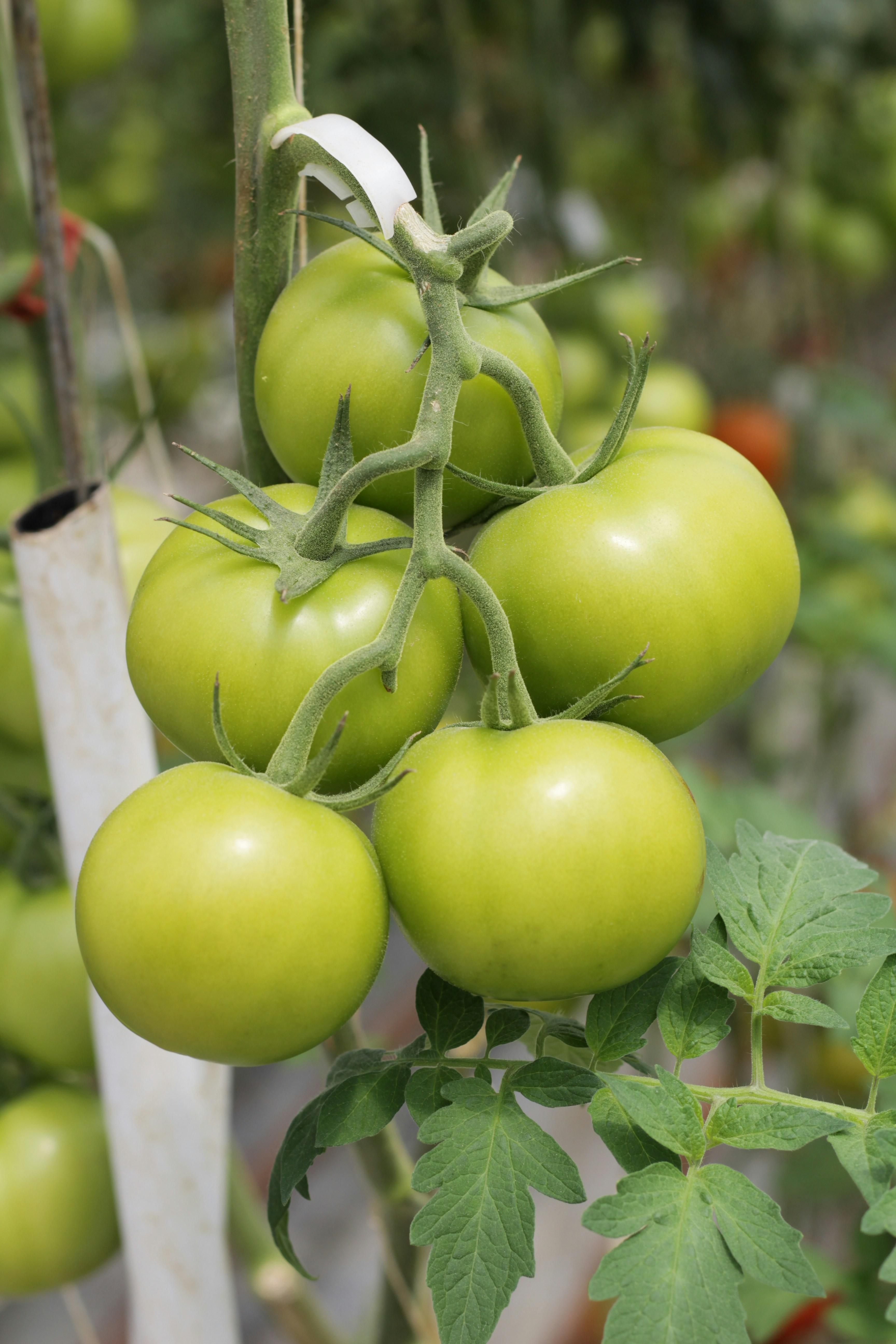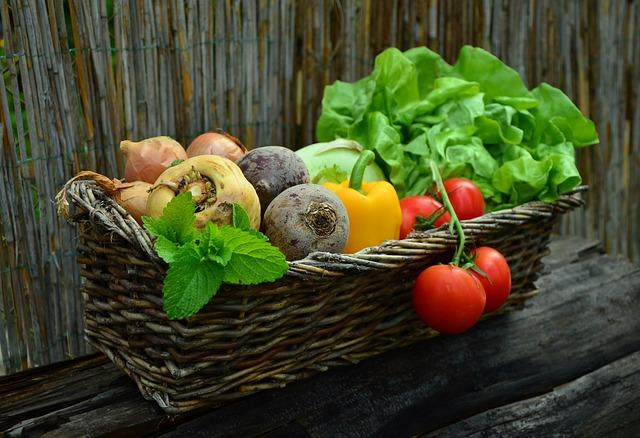In the vibrant world of fruits and vegetables, where the colors of nature paint a palette of health and vitality, a quiet debate simmers: Is organic produce truly the superior choice for those who embrace a vegetarian lifestyle? As consumers stroll through bustling farmers’ markets or navigate the aisles of their local grocery stores, the decision between conventional and organic produce is often influenced by whispers of nutritional benefits, environmental impacts, and ethical considerations. In this exploration, we delve into the heart of this verdant dilemma, examining whether organic offerings genuinely hold the promise of a better, healthier life for vegetarians or if the allure of organic is simply a tale of clever marketing. Join us as we peel back the layers of this debate, seeking clarity amidst the kaleidoscope of claims and counterclaims that surround the organic produce narrative.
The Nutritional Edge of Organic Produce for Plant-Based Diets
For those embracing a plant-based lifestyle, the choice between organic and conventional produce often boils down to the promise of a more nutritious diet. Organic produce is often touted as a superior option due to its potential for higher levels of certain nutrients and lower levels of pesticide residues. Some studies suggest that organic fruits and vegetables may contain higher concentrations of antioxidants and vitamin C, which are crucial for maintaining a healthy immune system and reducing oxidative stress.
- Reduced Exposure to Pesticides: Organic farming practices limit the use of synthetic pesticides, potentially reducing the risk of pesticide exposure.
- Environmental Impact: Organic agriculture supports biodiversity and soil health, which can have long-term benefits for the ecosystem.
- Flavor Profile: Many consumers report that organic produce often has a more vibrant flavor, potentially enhancing the overall culinary experience.
While the debate continues, for vegetarians focused on maximizing the health benefits of their diet, organic produce offers a compelling case. The potential for richer nutrients combined with reduced exposure to chemicals aligns with the health-conscious values of many plant-based eaters.

Understanding Pesticides: What Vegetarians Need to Know
For vegetarians concerned about the quality and safety of their produce, understanding the role of pesticides in both conventional and organic farming is crucial. While organic farming often touts the absence of synthetic chemicals, it’s important to recognize that organic farmers also use pesticides, albeit derived from natural sources. Here’s what vegetarians need to consider when choosing between organic and conventional produce:
- Pesticide Residues: Organic produce generally contains lower levels of pesticide residues compared to conventionally grown produce. However, the health impact of these residues is still debated among scientists.
- Environmental Impact: Organic farming practices aim to reduce environmental harm by avoiding synthetic pesticides and fertilizers. This can lead to healthier soil and biodiversity, which might align with a vegetarian’s ethical considerations.
- Cost and Accessibility: Organic produce is often more expensive and less accessible. For vegetarians on a budget, balancing between organic and conventionally grown produce might be necessary.
- Nutritional Value: Studies show mixed results regarding the nutritional differences between organic and conventional produce. Factors such as soil quality and farming practices can influence nutrient content.
Ultimately, the decision to choose organic produce is a personal one, often based on individual health priorities, ethical beliefs, and budget constraints. Vegetarians should weigh these factors carefully to make informed choices about their diet.

Environmental Impact: Organic Farming and Vegetarian Values
In the realm of agriculture, organic farming stands as a beacon for environmentally conscious practices. It employs methods that foster soil fertility and biodiversity while minimizing pollution. For vegetarians, who often choose their diet based on ethical considerations, these practices resonate deeply. Organic farming eschews synthetic fertilizers and pesticides, which not only reduces harmful chemical runoff into waterways but also promotes healthier ecosystems. This aligns with vegetarian values that prioritize the health of the planet and all its inhabitants.
Benefits of Organic Farming for Vegetarians:
- Reduces carbon footprint by using less energy-intensive farming techniques.
- Encourages the preservation of local wildlife habitats and biodiversity.
- Supports sustainable water management practices.
While the debate continues on whether organic produce is nutritionally superior, its environmental benefits are clear. For vegetarians committed to minimizing their ecological impact, supporting organic farming can be a natural extension of their lifestyle choices. By embracing these practices, vegetarians not only nourish their bodies but also contribute to a healthier planet.

Making the Choice: Expert Tips for Selecting Organic Produce
When you’re navigating the aisles in search of the freshest, most nutritious options, choosing organic produce can be a thoughtful decision for many vegetarians. Here are some expert tips to guide you:
- Prioritize the Dirty Dozen: The Environmental Working Group releases an annual list of produce most likely to contain pesticide residues. Opt for organic versions of these items to minimize your exposure.
- Check for Certifications: Look for the USDA Organic seal or other recognized certifications to ensure the produce meets strict organic farming standards.
- Go Local: Local farmers often use organic practices even if they aren’t certified. Visiting farmers’ markets or joining a CSA can offer fresher options that align with your values.
- Consider Cost vs. Benefit: Not all organic produce is equal in terms of nutritional benefits. Balance your choices by considering both health benefits and budget constraints.
Embracing organic produce as part of a vegetarian lifestyle can be both rewarding and beneficial, enhancing not just personal health, but also supporting sustainable agricultural practices.
Closing Remarks
As we reach the end of our exploration into the verdant world of organic produce and its place in a vegetarian diet, it becomes clear that the answer is not as simple as a crisp apple or a fresh head of lettuce. For some, the allure of organic produce lies in its promise of fewer chemicals and a more sustainable footprint, while for others, the higher cost and sometimes elusive health benefits may give pause. Whether you find yourself swayed by the ethos of organic farming or remain steadfast with conventional options, the choice ultimately lies in your hands, guided by your values, budget, and personal health journey.
In the ever-evolving landscape of dietary choices, one thing remains certain: the power of plants, organic or not, to nourish our bodies and connect us to the earth. As you fill your basket with vibrant fruits and vegetables, remember that every meal is an opportunity to reflect on the impact of your choices. Whether you lean towards organic or conventional, each bite is a step towards understanding what truly nourishes you. So, savor the journey, celebrate the abundance of nature, and let your plate be a testament to the values you hold dear.




